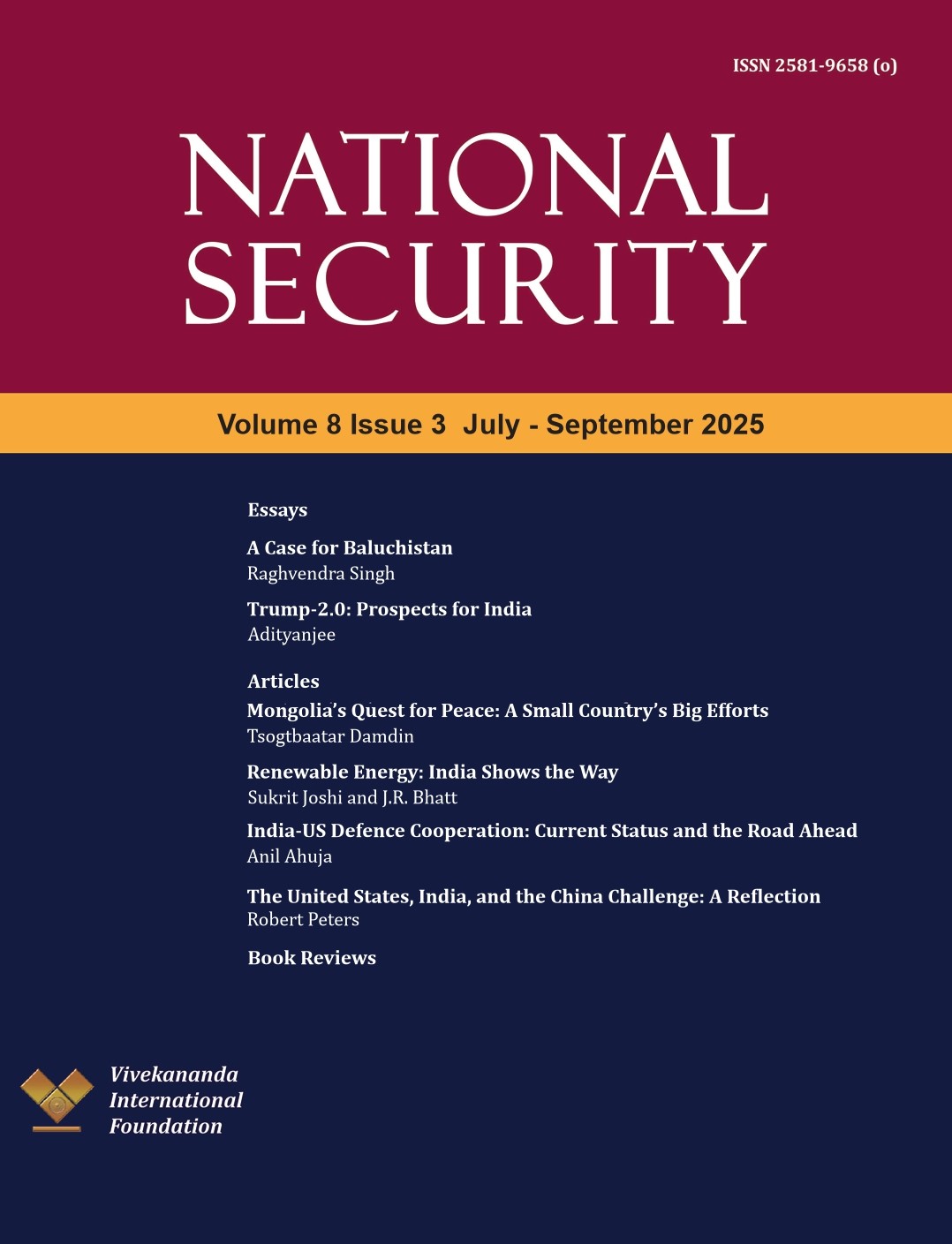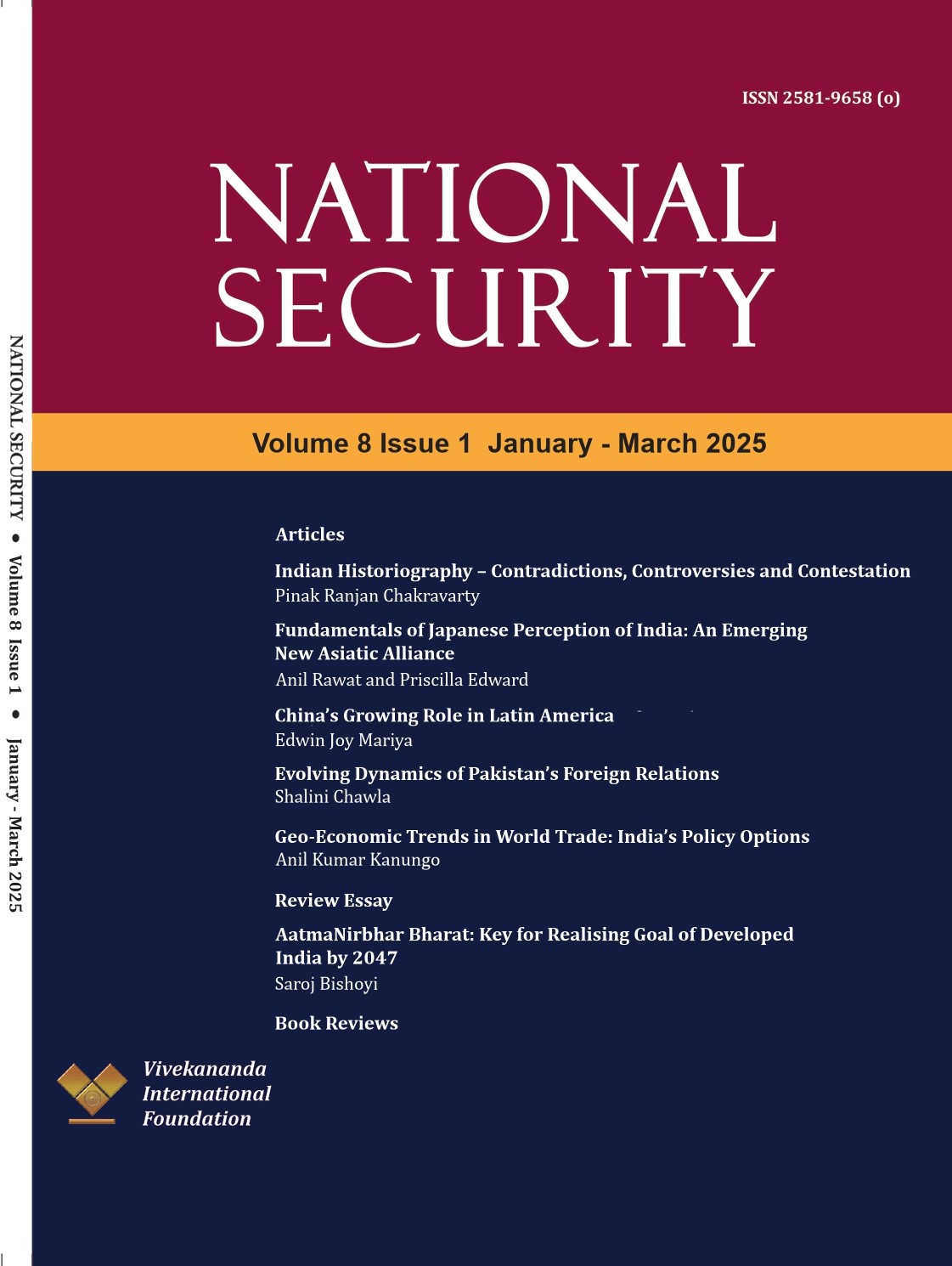National Security
Published in Association with Vivekananda International Foundation
Current Volume: 8 (2025 )
e-ISSN: 2581-9658
Periodicity: Quarterly
Month(s) of Publication: Mar, Jun, Sep & Dec
Subject: Political Science & International Affairs
DOI: 10.32381/NS
Online access is free for the Research Faculty of VIF
Decoding Xi Jinping's 3.0 Team: Changes in Political and Military Leadership
By : Kota Mallikarjuna Gupta
Page No: 159-192
Abstract
Political leaderships and their networks are influential and impactful in the decision-making process of societies worldwide. The role of the top political leaders is even more significant in authoritarian systems/single-party states like China. Absolute political power without resistance or opposition helps with quick decisions and policy formulations/alternations by government agencies. The competition to acquire power and position can be peaceful or fierce and depends on the capacities of individuals/institutions. This attempt to capture power, institutions and position among the elites of the Communist Party in China happens every five years during the Party Congress. Many factors determine the outcome of the fierce competition for power and positions in the Communist Party during the Party Congress. This fierce competition to acquire power influences ideological leanings, loyalty, political networks and governance models. The debate on the issues of consent, consensus and justice in the distribution/redistribution of power and positions in authoritarian regimes is tricky to conclude. Chinese Politics are like the ‘Great Wall of China’, where construction materials change based on geographical conditions. Chinese politics are also like the ancient Chinese board game of Wei qi, where the priority is to capture more territory over others.
Author :
Kota Mallikarjuna Gupta is a former Research Associate at the Vivekananda International Foundation (VIF).
DOI: http://doi.org/10.32381/NS.2023.06.02.3









